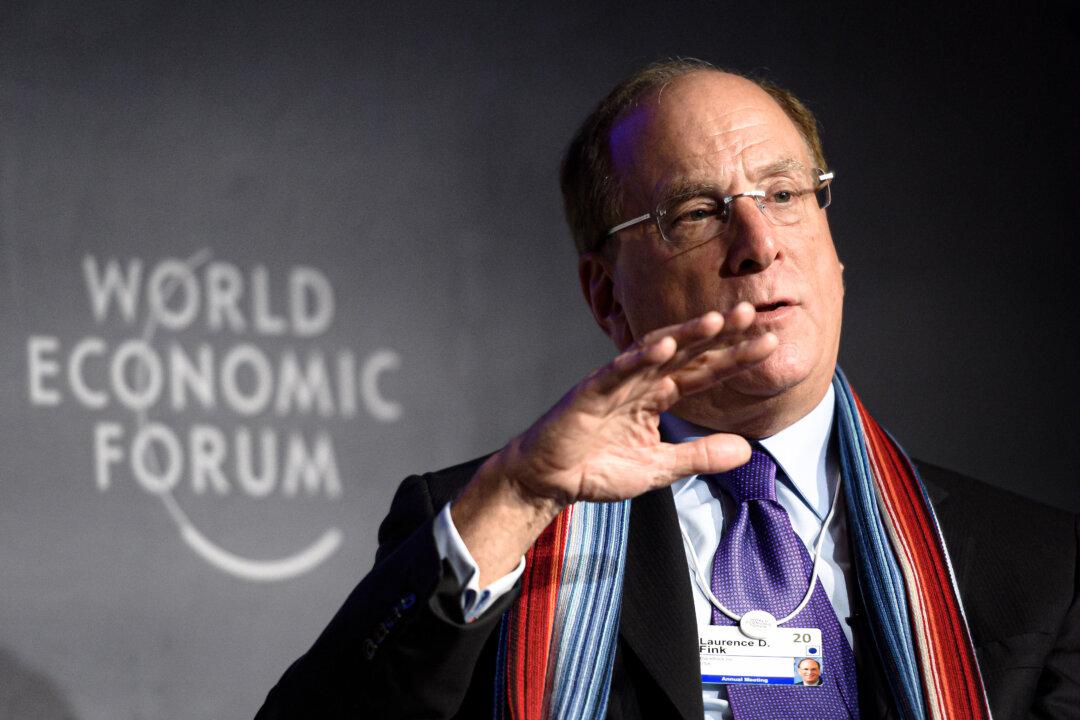BlackRock CEO Larry Fink, one of the most powerful figures on Wall Street and an outspoken champion of progressive causes, appeared to be backpedaling this week on his support for the environmental, social, and corporate governance (ESG) movement, saying he would no longer use the term.
“I’m not going to use the word ESG because it’s been misused by the far left and the far right,” Fink told attendees of the Aspen Ideas Festival on June 25, adding that he was “ashamed of being part of this conversation.” He also decried “personal attacks” that have come in response to some of the positions he has taken.





